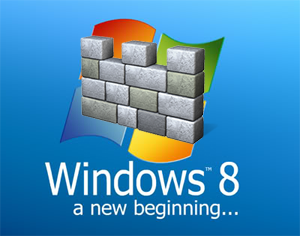 NEWS
NEWS
 NEWS
NEWS
 NEWS
NEWS
![]() It’s big news for the Microsoft Windows community that native antivirus is going to come pre-installed for out-of-the-box operating systems. Worldwide, Windows machines account for a significant portion of all machines 0wn3ed by various worms and viruses that generate zombies for botnets; rootkit viruses are on the rise, and even those people who rely on expensive subscription-based antivirus vendors become victims.
It’s big news for the Microsoft Windows community that native antivirus is going to come pre-installed for out-of-the-box operating systems. Worldwide, Windows machines account for a significant portion of all machines 0wn3ed by various worms and viruses that generate zombies for botnets; rootkit viruses are on the rise, and even those people who rely on expensive subscription-based antivirus vendors become victims.
The antivirus ecology is a Red Queen’s race between malware writers and antivirus vendors, the people who really get screwed over in this jungle are people without antivirus protection. A quick look over at Wikibon Security shows us that there’s lots of freeware opportunities to burn malware out of an infected computer; but not everyone who has a new Windows machine thinks twice about their online security. Education in virus protection is lax and the web is crawling with these cantankerous critters.
This move is probably designed to help patch up the ailing image of Microsoft Windows when it comes to its propensity to end up being a haven for viruses.
Being the most popular software on the block also makes the operating system the biggest target for malware writers.
Microsoft has actually had free antivirus software out in the wild for some time now, named Microsoft Security Essentials. Since Windows XP SP2,Vista, and 7 there’s also been Windows Defender—which, while not a fully fledged antivirus product, did attempt to educate users by yelling at them to get an antivirus service installed. For Windows 8, Windows Defender will be buttressed with the power of Microsoft Security Essentials bringing it up to speed with modern antivirus perimeter defenses and refreshing its armaments.
Why didn’t Microsoft do this earlier?
Chances are this is an artifact of the Bundling Wars when Microsoft went biting-and-scratching against Mozilla over bundling Internet Explorer with Windows and stifling competition against the Netscape browser. When it comes to antivirus, however, it’s less a concern about who’s selling an aperture into the Internet and now it’s about the health of the computer—and, by extension, the Internet as a whole.
Antivirus security vendors like Symantec and McAfee may see this as a slash at their bottom-line; but really if they want to stay on my good side they should stay out of fighting Microsoft on this one.
No, instead they should embrace the solution. It will make their jobs a lot easier if it’s harder for malware writers to get computers infected with software that turns them into DDoS pumping zombies or phishing pimping websites. Microsoft Security Essentials isn’t going to be the best-on-the-block when it comes to antivirus software, it’s going to become the generic lock on the door that everyone gets when they move into the building and McAfee and Symantec will still be able to act as a the Schladge and Master Lock of the Internet world.
In fact, both McAfee and Symantec have a chance to show how they’re that much better. Symantec just came out with an interconnected Norton armor solution that integrates both PCs and mobile devices; and Intel’s acquisition of McAfee puts them in a similarly strong position to expand into the mobile market while being able to work down to the chip-level for hardware protection.
How will this affect the malware world?
![]() As I mentioned before, the malware and antivirus ecology is a Red Queen’s race so what we can expect is that as Windows 8 becomes part of the cyber-biome that malware infections and viruses will decline. After a short dip, malware writers will begin to examine the way that Microsoft Security Essentials for Windows 8 functions and write their software to slip past its defenses. The cycle will begin anew.
As I mentioned before, the malware and antivirus ecology is a Red Queen’s race so what we can expect is that as Windows 8 becomes part of the cyber-biome that malware infections and viruses will decline. After a short dip, malware writers will begin to examine the way that Microsoft Security Essentials for Windows 8 functions and write their software to slip past its defenses. The cycle will begin anew.
We will probably even see different camouflage tricks being pulled by malware websites attempting to infect computers by pretending to be antivirus warnings.
I see a sort of Herd Immunity setting in for a few years; although, really it will rest on the fact that unpatched and previous versions of Windows will still be in the wild and spreading maladies.
In all, I believe that having an updating antivirus solution built into the most common and popular OS in the world will put a significant crimp in malware distribution and furthermore, if Microsoft partners with enough other antivirus outfits, it might help give much better metrics on malware in the wild.
A computer with no antivirus software running cannot discover and record the presence of malware and therefore cannot inform anyone else what it saw.
Support our mission to keep content open and free by engaging with theCUBE community. Join theCUBE’s Alumni Trust Network, where technology leaders connect, share intelligence and create opportunities.
Founded by tech visionaries John Furrier and Dave Vellante, SiliconANGLE Media has built a dynamic ecosystem of industry-leading digital media brands that reach 15+ million elite tech professionals. Our new proprietary theCUBE AI Video Cloud is breaking ground in audience interaction, leveraging theCUBEai.com neural network to help technology companies make data-driven decisions and stay at the forefront of industry conversations.